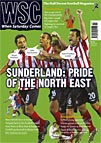 To be president of Real Madrid brings vast power and influence, but that is where the problems begin, writes Tim Stannard
To be president of Real Madrid brings vast power and influence, but that is where the problems begin, writes Tim Stannard
It’s Friday night in Colmenar Viejo, a town half-an-hour to the north of Madrid, and Eugenio Martínez Bravo has a tough gig. The 39-year-old economist is fighting a losing battle to convince a group of 20 arms-folded Real Madrid members to make him the next president of their troubled club. The 230 empty seats in the spacious hotel conference room suggest that there were hopes for a slightly better turnout.
The previous day, Florentino Pérez, the man seen by much of the local press as Madrid’s returning Messiah, strolled up to the podium to announce his intention to stand in the presidential poll that he would go on to win. The 13-minute speech was covered by 202 journalists and broadcast live on two television channels. All that the two candidates had in common was a smart blue blazer and a Real Madrid jacket pin worn proudly over their hearts.
In theory, the search to find a new leader to bring the club out of their latest sporting scrape is taking place 12 months early. But the resignation of Ramón Calderón in January 2009 after a vote-rigging scandal at the club’s AGM has brought the poll forward by a year. It was fitting that the lawyer described as “the worst president in Real Madrid’s history” by sports daily Marca should have ended his term in such controversial circumstances. Calderón was the winner of the club’s 2006 election; a poll that was also held prematurely due to the resignation of Pérez after his mixture of superstars and comparative journeymen lead to infighting and failure.
But ballot box-stuffing and skulduggery blighted the electoral process with the Santiago Bernabeu becoming a banana republic where candidates did everything within and outside of the law to become the boss of one of Spain’s most important institutions. It was a snapshot of why Real Madrid has been met by ridicule rather than respect over the past five years.
Unlike most Premier League clubs, Madrid cannot become a billionaire’s plaything one day and an asset-stripped shell the next. The club has no single owner. Instead, their figurehead is elected by its 70,000 members. But a system that should be the envy of football fans has left Madrid lagging behind their main international rivals.
Speaking after his meeting with the supporters club, Bravo blames Madrid’s presidential model, rather than the elective process, for the club’s recent turbulent times. “The president of Real Madrid has too much power. We simply cannot depend on one person for the welfare of the club,” he says, arguing that some recent presidents have seen Madrid more as a fiefdom than a football club. It is unlikely that Madrid’s institutional structure will change anytime soon. El Presidente has the best seats at Wimbledon and a private jet. Every word he utters is broadcast around Spain and picked apart by the country’s sensation-seeking daily football press. “Leaders from other countries come to the Bernabeu first,” says María Bretones of radio station Cadena Ser. “They meet the president of Real Madrid before the president of the government.”
This kind of intoxicating power is hard to give up. And that’s why any on-the-pitch problems that can endanger the president’s survival are met with swift acts of self-preservation – inevitably leading to the sacking of the manager and continued chaos.
Real Madrid are also far from being an ideal democratic institution. All presidential candidates must be Spanish and have been a member for ten years. Most importantly of all, they have to front a deposit of €57 million (£49m) or 15 per cent of Madrid’s budget in 2009. A rule designed to warn off those wanting to put their hand in the club’s cookie jar leaves just the super-rich, or those with super-rich friends, able to run in the race. “It’s a completely unfair law, it’s old and obsolete,” says Bravo, who became a late withdrawal from the race having failed to secure the necessary funding.
What Real need most of all is fresh-thinking and an institutional overhaul. But the financial constraints against potential candidates, the overwhelming power of the presidency and the knee-jerk need for short-term measures over long-term planning means that this is unlikely to happen any time soon. “A president of Real Madrid wants two things,” says Javier, a frustrated fan looking at the return of construction giant Pérez to the Bernabeu throne. “To become rich or to be loved.”
From WSC 269 July 2009